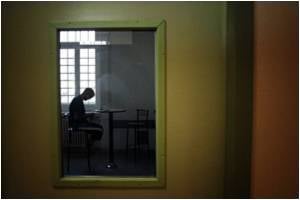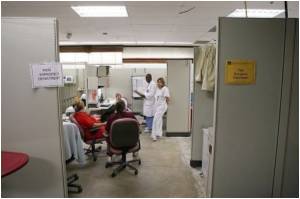Bipolar disorder is marked by severe mood variations like sudden expression of excitement or physical hyperactivity. FDA has particularly approved lithium for treatment of mania and bipolar disorder.

Neurotransmitters have been found to be responsible in the activity modifications leading to sudden mood swings. Thus, the treatment for Bipolar disorder aims to regulate these neurotransmitters in order to restore normal mood and cognition. This can be achieved by non-pharmacologic methods like meditation, relaxation and exercise that do not involve any medication but have the potential to increase endogenous opioid and nicotinic receptor function that helps restore normal behaviour.
Stress should be laid on the careful assessment of the symptoms as there are many psychiatric conditions like schizophrenia, schizoaffective disorder, post-traumatic stress disorder, substance abuse (e.g., alcohol, cocaine, or amphetamines), and personality disorders that may coexist with bipolar disorder.Thorough physical examination must be conducted with focus on neurologic and endocrine systems, to rule out possibilities of other mood disorders.
A mental status examination (MSE) is often recommended as it assesses the patient’s general appearance and demeanor, speech, movement, and interpersonal relatedness with the examiner and others. It also identifies suicidal tendencies in patients and subtle forms of psychosis, such as paranoia or delusional states.
Drugs like lithium, anticonvulsants, antipsychotics, and benzodiazepines have been found to be successful in management of bipolar disorders.FDA has particularly approved Lithium for treatment of mania and bipolar disorder. It is a mood stabilizer, lowers suicide rate in patients with bipolar disorder and has been shown to mitigate relapse of bipolar disorder preventing occurrence of more manic episodes. However, it must also be noted that prolonged used of Lithium may have adverse effects like it can damage the small blood vessels in kidneys that clean the blood,can lower the activity of thyroid, goiter, and possibly cause cardiac rhythm disturbances, especially in patients with pre-existing cardiac disease.
Like Lithium, Anticonvulsants too are successful in the treatment of bipolar disorders as they decrease brain excitation and enhance inhibition by blocking low-voltage sodium-gated channels. The drug also tends to lower glutamate and other excitatory amino acids. Valproate, divalproex, lamotrigine, and carbamazepine are the anticonvulsants generally used in the treatment.
Apart from these, antidepressants can also be used as a management option in bipolar diseases. Fluoxetine monotherapy provides relapse prevention benefit after recovery from Bipolar disorders ensuring that the mood swings do not resurface.
Reference:
1. Bipolar II Disorder in Adults: A Review of Management Options; Mary Soliman et al; US Pharm. 2011;36(11):HS17-HS24
2. Management, needs and expectations of patients suffering from bipolar Pubmed
Source-Medindia










